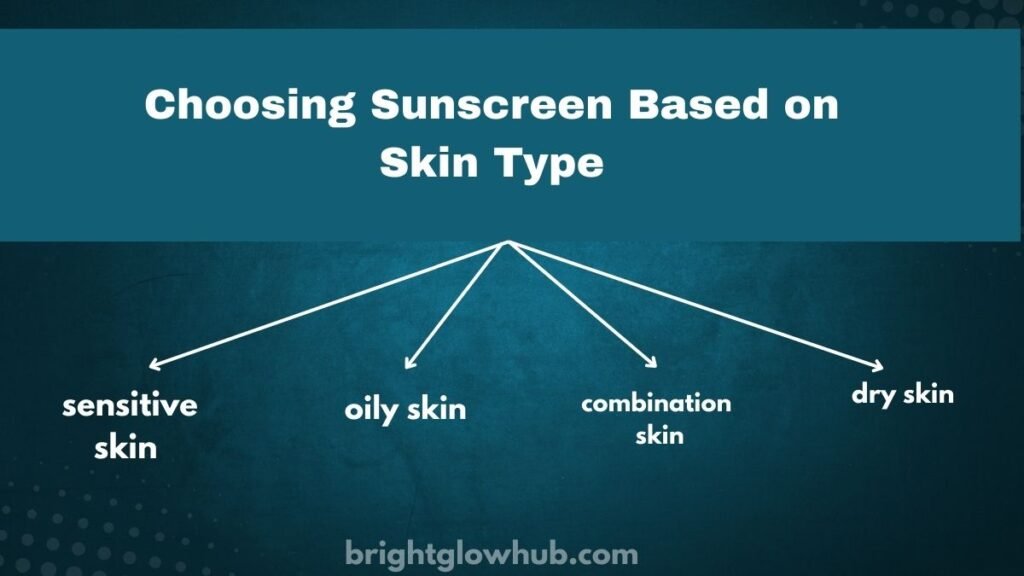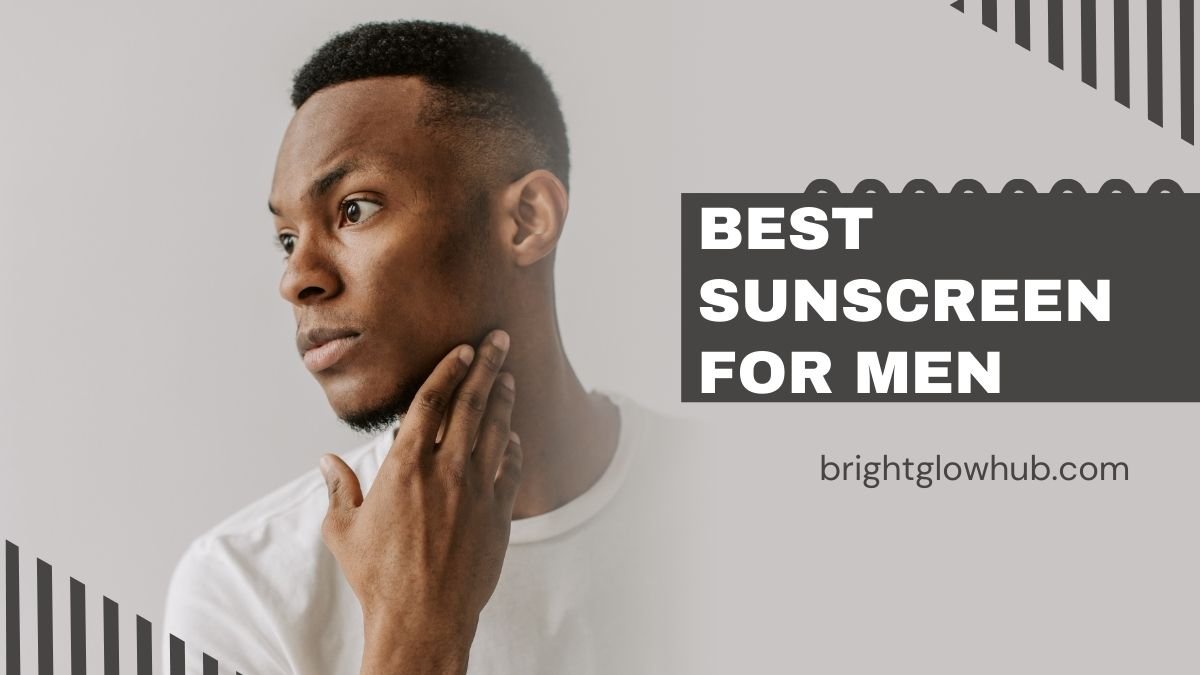Gone are the days when sunscreen was considered optional for men. Today’s modern gentleman understands that proper sun protection is essential for maintaining healthy, youthful-looking skin. With so many options available, finding the right sunscreen can feel overwhelming. This comprehensive guide(Best Sunscreen for Men) will help men navigate through various formulations, skin types, and lifestyle needs to discover their perfect sun protection match.
Why Men Need Specialized Sun Protection
Men’s skin differs significantly from women’s skin in several key ways. It’s typically 25% thicker, produces more oil, and tends to be less sensitive to certain ingredients. These differences mean that men’s skincare sunscreen products are often formulated with these unique characteristics in mind.
Many men lead active lifestyles that expose them to more sun than the average person. Whether they’re working outdoors, playing sports, or simply commuting to work, consistent sun exposure can lead to premature aging, dark spots, and more serious skin concerns. The good news is that with the right daily sunscreen for men, protection becomes effortless and automatic.
Understanding SPF and Protection Levels
What SPF Rating Should Men Choose?
When it comes to determining the best SPF for men, dermatologists consistently recommend SPF 30 as the minimum for daily use. This level blocks approximately 97% of harmful UV rays. For extended outdoor activities or those with fair skin, SPF 50 provides even greater protection.
| SPF Level | UV Protection | Best For |
|---|---|---|
| SPF 15 | 93% protection | Brief outdoor exposure |
| SPF 30 | 97% protection | Daily use, most skin types |
| SPF 50+ | 98%+ protection | Extended sun exposure, fair skin |
The Importance of Broad-Spectrum Coverage
Broad-spectrum sunscreen for men protects against both UVA and UVB rays. UVB rays cause burning, while UVA rays penetrate deeper and contribute to aging and skin damage. Quality formulations ensure comprehensive protection against both types of harmful radiation.
Choosing Sunscreen Based on Skin Type

For Oily and Acne-Prone Skin
Men with oily skin often avoid sunscreen, fearing it will make their skin appear greasy or cause breakouts. However, oil-free sunscreen for men and matte finish sunscreen for men options are specifically designed to address these concerns.
Men’s sunscreen for oily skin typically features:
- Non-comedogenic formulations that won’t clog pores
- Lightweight textures that absorb quickly
- Oil-controlling ingredients like silica or niacinamide
- Gel-based or water-based formulations
For Dry Skin Types
Men’s sunscreen for dry skin serves a dual purpose: protecting from sun damage while providing essential hydration. These formulations often include moisturizing ingredients like hyaluronic acid, ceramides, or glycerin.
The best products for dry skin combine sun protection with nourishing ingredients, eliminating the need for separate moisturizer and sunscreen applications. This makes the morning routine more efficient for busy men.
Sensitive Skin Solutions
Men with sensitive skin should look for fragrance-free sunscreen for men options. These gentle formulations avoid common irritants like alcohol, synthetic fragrances, and harsh preservatives. Mineral sunscreen for men using zinc oxide or titanium dioxide tends to be gentler than chemical alternatives.
Facial Protection: A Critical Component
Specialized Face Formulations
Sunscreen for men’s face requires special consideration due to the delicate nature of facial skin. These products are typically lighter in texture and designed to work well under other grooming products or even light makeup for men who use it.
Men’s face cream with SPF combines moisturizing benefits with sun protection, streamlining the morning routine. These multi-functional products save time while ensuring consistent protection.
Addressing Skin Tone Considerations
Sunscreen for dark skin men has evolved significantly in recent years. Modern formulations avoid the white cast that was once common with mineral sunscreens. Tinted sunscreen for men can provide light coverage while offering protection, making it an excellent option for all skin tones.
Formulation Types: Chemical vs. Mineral
Chemical Sunscreen Benefits
Chemical sunscreen for men absorbs UV rays and converts them to heat. These formulations typically offer:
- Invisible finish upon application
- Lightweight feel
- Easy blending
- No white residue
Popular chemical filters include avobenzone, octinoxate, and oxybenzone, though some men prefer to avoid certain chemicals due to sensitivity concerns.
Mineral Sunscreen Advantages
Mineral sunscreen for men sits on top of the skin and physically blocks UV rays. These formulations are ideal for:
- Sensitive skin types
- Those who prefer natural sunscreen for men options
- Immediate protection upon application
- Longer shelf life stability
Active Lifestyle Protection

Sports and Exercise
Men who lead active lifestyles need specialized protection that can keep up with their activities. Sports sunscreen for men is formulated to withstand intense physical activity while maintaining protection levels.
Sweat-resistant sunscreen for men uses advanced technologies to maintain adhesion even during vigorous exercise. These products typically resist sweat for 40-80 minutes, depending on the specific formulation.
Water Activities
For swimming, surfing, or other water activities, waterproof sunscreen for men provides the highest level of water resistance. While no sunscreen is truly “waterproof,” these formulations maintain their SPF rating for longer periods in water.
Anti-Aging and Long-Term Benefits
Beyond Sun Protection
Anti-aging sunscreen for men incorporates ingredients that address multiple skin concerns simultaneously. These advanced formulations might include:
- Antioxidants like vitamin C or E
- Peptides for firming
- Retinol for cell turnover
- Niacinamide for skin texture improvement
Professional Recommendations
Dermatologist recommended sunscreen for men products have undergone rigorous testing and clinical evaluation. These professional-grade formulations often feature patented technologies and proven ingredient combinations.
Texture and Application Preferences
Lightweight Options
Lightweight sunscreen for men caters to those who dislike heavy or greasy feelings on their skin. These formulations absorb quickly and don’t interfere with clothing or other products.
Sunscreen lotion for men offers a familiar texture that most men find comfortable and easy to apply. These products spread easily and provide even coverage across large areas of skin.
Integration with Grooming Routines
Men’s grooming sunscreen products are designed to complement existing shaving and skincare routines. They work well over aftershave, don’t interfere with cologne application, and won’t cause irritation when applied to recently shaved skin.
Travel and Convenience Factors
Portable Protection
Men’s travel sunscreen comes in TSA-approved sizes and durable packaging that can withstand the rigors of travel. These products maintain their effectiveness across different climates and altitude changes.
Travel-sized options ensure men never skip sun protection, whether they’re on business trips, vacation, or outdoor adventures.
Natural and Eco-Conscious Options
Clean Beauty for Men
The natural sunscreen for men market has expanded significantly, offering effective protection using naturally derived ingredients. These products appeal to environmentally conscious consumers who prefer reef-safe, biodegradable formulations.
Natural options often feature zinc oxide as the active ingredient, combined with nourishing plant-based ingredients like coconut oil, shea butter, or aloe vera.
Application Tips for Maximum Effectiveness
Proper Technique
Regardless of which product men choose, proper application is crucial for effectiveness. Most people apply far less sunscreen than needed for the stated SPF protection. The recommended amount is:
- Face and neck: 1/4 teaspoon
- Arms: 1 teaspoon total
- Legs: 2 teaspoons total
- Torso: 2 teaspoons
Timing and Reapplication
Sunscreen should be applied 15-30 minutes before sun exposure to allow proper absorption. Reapplication every two hours is essential, regardless of the product’s water resistance claims.
Common Myths and Misconceptions
Debunking Popular Beliefs
Many men still believe myths about sun protection that prevent them from using sunscreen consistently:
- Myth: “I don’t burn, so I don’t need sunscreen”
- Reality: All skin types can experience sun damage, even if burning doesn’t occur
- Myth: “Sunscreen will make me break out”
- Reality: Modern non-comedogenic formulations are designed to prevent clogged pores
- Myth: “I only need sunscreen at the beach”
- Reality: UV exposure occurs daily, even through windows and on cloudy days
Building a Consistent Routine
Making Sun Protection Automatic
The key to effective sun protection is consistency. By choosing products that fit seamlessly into existing routines, men are more likely to use them daily. This might mean selecting a men’s face cream with SPF for the morning routine or keeping sports sunscreen for men in the gym bag.
Product Selection Guidelines
Key Features to Consider
When evaluating options, men should consider:
- Skin type compatibility: Oily, dry, or sensitive skin needs
- Lifestyle factors: Activity level and sun exposure
- Texture preferences: Lotion, gel, or cream consistency
- Additional benefits: Anti-aging, moisturizing, or tinting properties
- Ingredient preferences: Chemical vs. mineral formulations
Quality Indicators
High-quality sunscreens typically feature:
- Third-party testing and certification
- Stable, proven ingredient combinations
- Appropriate packaging that protects ingredients from degradation
- Clear labeling of SPF and water resistance claims
Seasonal Considerations
Year-Round Protection
Sun protection isn’t just for summer. UV rays can be particularly intense during winter months due to snow reflection, and spring sun can cause unexpected burns on unaccustomed skin.
Different seasons may call for different formulations:
- Summer: Higher SPF, water-resistant options
- Winter: Moisturizing formulations for dry air
- Spring/Fall: Moderate SPF with anti-aging benefits
Budget-Friendly Options
Value Without Compromise
Effective sun protection doesn’t require expensive products. Many drugstore brands offer excellent dermatologist recommended sunscreen for men options at affordable prices. The key is focusing on proven ingredients and appropriate SPF levels rather than marketing claims.
Special Situations and Considerations
Unique Circumstances
Some men face special sun protection challenges:
- Balding or thinning hair: Scalp protection becomes crucial
- Occupational exposure: Outdoor workers need industrial-strength protection
- Medical conditions: Certain medications increase sun sensitivity
- Post-treatment skin: After chemical peels or laser treatments, extra protection is essential
Future Trends in Men’s Sun Protection
Innovation and Development
The men’s sunscreen market continues to evolve with new technologies and formulations. Emerging trends include:
- Smart sunscreens that adapt to UV intensity
- Powder formulations for easy reapplication
- Customizable tinting options
- Sustainable, reef-safe ingredients
- Integration with wearable technology for application reminders
Making the Right Choice
Personal Assessment
The best sunscreen is the one that men will use consistently. This means considering personal preferences, skin type, lifestyle, and budget to find the optimal match.
Trial and error may be necessary to find the perfect product, but starting with dermatologist recommended sunscreen for men options can help narrow down the choices.
Frequently Asked Questions About Men’s Sunscreen
Do men really need different sunscreen than women?
While the active ingredients remain the same, men’s skincare sunscreen is often formulated differently to account for men’s typically thicker, oilier skin. Men’s versions usually feature lighter textures, matte finish sunscreen for men properties, and oil-free sunscreen for men formulations to prevent shine and clogged pores. However, any quality sunscreen can work regardless of gender.
What’s the difference between waterproof and water-resistant sunscreen?
Technically, no sunscreen is truly “waterproof.” Waterproof sunscreen for men and sweat-resistant sunscreen for men products maintain their SPF protection for specific time periods – usually 40 or 80 minutes of water exposure. The term “waterproof” is actually no longer permitted by the FDA; “water-resistant” is the correct terminology.
Should men use separate sunscreen for their face and body?
Yes, sunscreen for men’s face is typically lighter and less likely to clog pores than body formulations. Facial skin is more delicate and prone to breakouts, so men’s face cream with SPF products are specifically designed for this sensitive area. Body sunscreens can be too heavy for facial use.
Will sunscreen make men break out?
Modern men’s sunscreen for oily skin formulations are non-comedogenic, meaning they won’t clog pores. Look for oil-free sunscreen for men or gel-based formulations if you’re prone to acne. Avoid heavy, greasy formulations that can contribute to breakouts
How should active men choose sunscreen for sports?
Sports sunscreen for men should offer water and sweat resistance, typically lasting 40-80 minutes during intense activity. Look for products specifically designed for athletic use that won’t sting eyes or interfere with grip on equipment
Can men use tinted sunscreen?
Tinted sunscreen for men is an excellent option that provides light coverage while protecting skin. Modern tints are designed to work with various skin tones and can help even out complexion while providing sun protection.
How do I choose sunscreen for travel?
Men’s travel sunscreen should meet TSA size requirements (3.4 oz or less), work in various climates, and maintain effectiveness across temperature changes. Consider stick formulations for easy application and minimal mess during travel
Should men consult dermatologists about sunscreen choice?
Dermatologist recommended sunscreen for men options are ideal for those with specific skin concerns, medical conditions, or those taking medications that increase sun sensitivity. Professional guidance ensures optimal protection for individual needs.
Disclaimer :
Remember to consult with a dermatologist for personalized skincare advice, especially when addressing specific skin concerns or combining sunscreen with other active ingredients.
Interesting topics :
Why Sunscreen Is the Best Anti-Aging Product You’ll Ever Need
Glow Up, Not Burn Out: Your Ultimate Guide to individuals best Sunscreens
Do Men Need Sunscreen? Yes, Every Day
Conclusion
Proper sun protection is no longer optional for today’s health-conscious men. With the wide variety of men’s skincare sunscreen options available, every man can find a product that meets his specific needs and preferences.
Whether seeking lightweight sunscreen for men for daily use, sports sunscreen for men for active lifestyles, or anti-aging sunscreen for men for long-term skin health, the perfect product exists. The key is understanding individual needs and choosing accordingly.
By making sun protection a daily habit, men can maintain healthier, younger-looking skin while preventing serious sun damage. The investment in quality sunscreen today pays dividends in skin health for years to come.
Remember, the best sunscreen is the one that gets used every day. Find a product that fits seamlessly into your routine, and make sun protection as automatic as brushing your teeth. Your skin will thank you for it.
